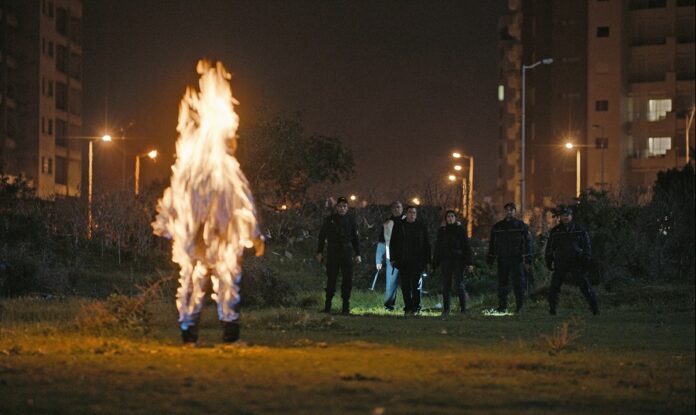CHENNAI: A fiery thriller that blends policework with elements of science fiction and the supernatural, Cannes Film Festival title “Ashkal” is Tunisian director Youssef Chebbi’s debut feature-length work — and it premiered in the Directors’ Fortnight section of the recently concluded festival.
The director is known for his previous short films, including one on human trafficking, and also the award-clinching documentary “Babylon.” Watching “Ashkal,” it seems that the auteur used his earlier experience with shorts for his latest outing, a thriller set in a shadowy world.
The film unfolds in the Gardens of Carthage in north Tunis just after the Arab Spring. Supplied
The film unfolds in the Gardens of Carthage in north Tunis just after the Arab Spring. It is in this uneasy, disquieting setting that Chebbi sets in motion his mysterious murders. Construction has been halted after President Zine El Abidine Ben Ali was ousted in the face of angry public protests. An eerie suburb with half-finished apartment blocks could not have been a better setting for what “Ashkal” brings to the big screen.
A gruesome burnt body is found at an incomplete building site, forcing the police to question whether it is murder or suicide by self-immolation. Two detectives, Fatma (Fatma Oussaifi) and Batal (Mohamed Houcine Grayaa), are tasked with digging deeper into the mystery, but before they can get to grips with it another burnt body is discovered. The hunt for a killer is on, but it seems the perpetrator is always one step ahead as the atmosphere gets tense and a nauseating sense of violence filters into the characters’ psyche. Against this backdrop, the Truth and Dignity Commission seek to address police corruption and get justice for the victims of state torture.
The film unfolds at night and cinematographer Hazem Berrabah has managed to ensure an overwhelming sense of melancholy and it is with this in mind that “Ashkal” gets a little bizarre in its third act, hopping from scientific detection to the supernatural. It fumbles here and seems to lose its way, ending without a plausible explanation for its strange off-course journey. However, Berrabah’s camera work and lighting superbly recreate the melancholic mood and setting — it is unnerving the way he plays around with dark shadows.

